Table of Contents
Introduction
In today’s fast-paced world, balancing work, life, and mental health can feel like an ongoing challenge. Between meeting deadlines, managing household responsibilities, and trying to maintain social connections, it’s easy to feel overwhelmed. However, finding a way to manage the pressures of life is not only possible but essential for your mental well-being. By establishing boundaries, learning to prioritize self-care, and knowing when to seek help, you can achieve a healthier work-life balance.
In this post, we’ll break down practical strategies for managing stress, setting effective boundaries, and nurturing mental health. Whether you’re a busy professional, a parent, or someone juggling multiple responsibilities, these tips will guide you in creating a more balanced and fulfilling life.
Why Work-Life Balance Matters for Mental Health

The impact of work-related stress on mental health is undeniable. Prolonged stress can lead to burnout, anxiety, and depression. According to the American Psychological Association, workplace stress is one of the leading causes of mental health struggles in the United States. In fact, over 60% of Americans report feeling stressed at work, and the consequences of this stress often spill over into personal lives, affecting relationships and self-esteem.
On the flip side, achieving a balance between work and personal life can significantly improve your mental health. A proper work-life balance fosters:
- Increased Productivity: When you’re well-rested and emotionally fulfilled, you’re better able to perform at work and at home.
- Improved Relationships: When stress is minimized, you can invest more time and energy into your relationships, enhancing both your personal and professional connections.
- Enhanced Self-Worth: A healthy balance helps reinforce a sense of control, boosting self-esteem and mental well-being.
Strategies for Balancing Work, Life, and Mental Health
Achieving balance requires intentional effort and the willingness to prioritize your mental health. Here are some effective strategies to help you navigate the balance between work, life, and mental well-being.
1. Set Clear Boundaries
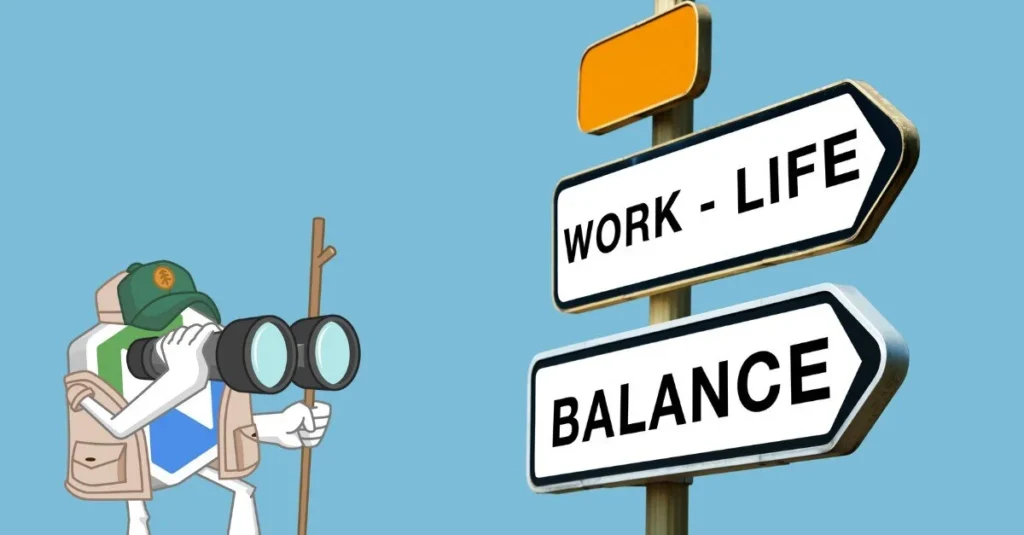
One of the first steps to balancing work and life is establishing boundaries. When you’re working from home or constantly on the go, it’s easy to let work spill over into personal time. To avoid this, it’s crucial to:
- Create a designated workspace: Even if you’re working from home, set up a physical space that’s strictly for work. This helps you mentally separate your professional life from your personal life.
- Establish work hours: Stick to a schedule as much as possible. For instance, decide that you will only work between 9 AM and 5 PM, and after that, your time belongs to you and your family or personal activities.
- Communicate your boundaries: Be clear with your boss, colleagues, and family members about your boundaries. Let them know when you are and aren’t available.
Setting boundaries doesn’t just apply to your professional life. It’s equally important to set personal boundaries, especially with friends and family, to prevent overcommitting yourself.
2. Prioritize Self-Care and Mental Health
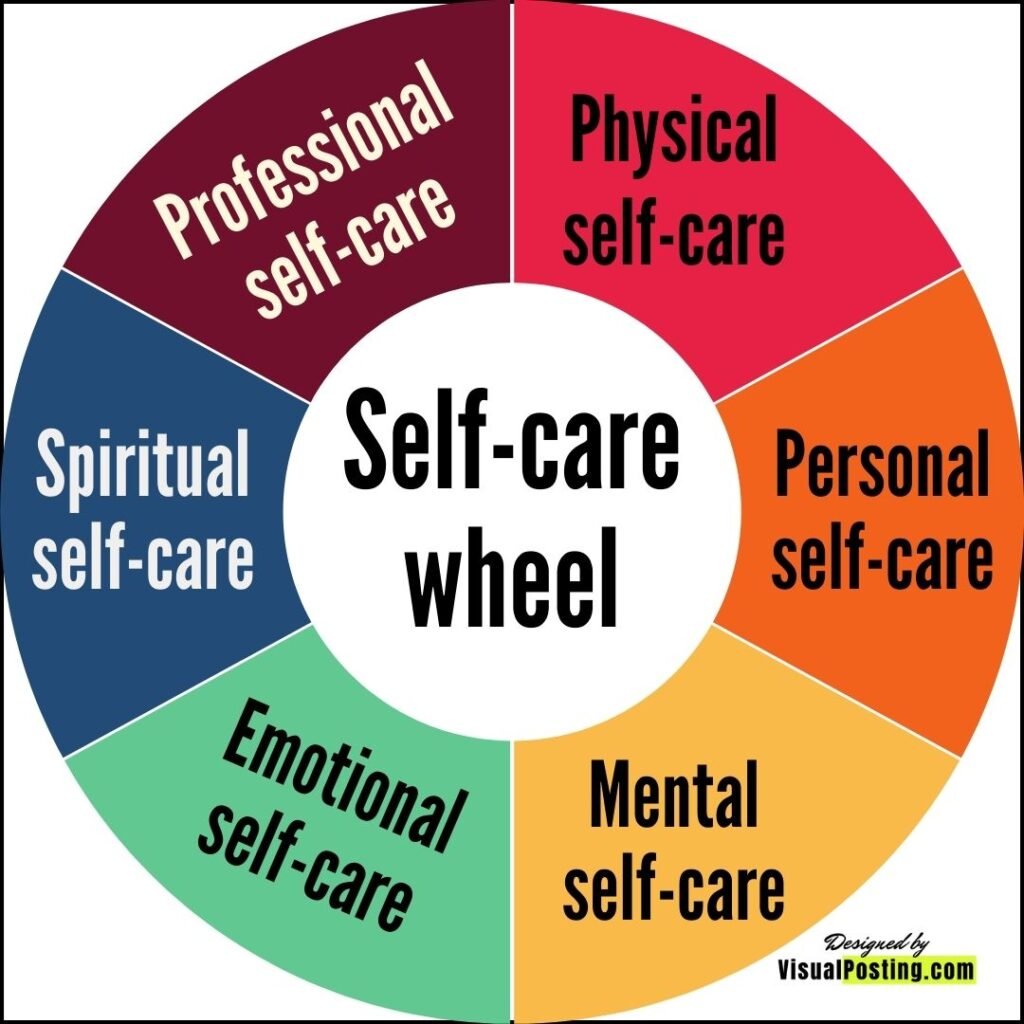
Self-care is often seen as a luxury, but in reality, it’s a necessity. Taking time for yourself can help you recharge and maintain mental clarity. Here are a few self-care tips to incorporate into your routine:
- Exercise regularly: Physical activity is one of the most effective ways to combat stress. Exercise releases endorphins, also known as “feel-good” hormones, which can boost mood and energy levels. Aim for at least 30 minutes of exercise most days of the week. If you’re new to fitness, check out Harvard Health’s exercise recommendations for some tips.
- Practice mindfulness: Meditation, yoga, or even just taking a few moments each day to breathe deeply can help calm your mind and reduce stress. Mindfulness practices have been shown to lower anxiety and improve overall mental health.
- Get enough sleep: Sleep is foundational to mental well-being. Poor sleep can lead to increased stress, irritability, and even mental health issues like depression. Aim for 7–9 hours of quality sleep each night.
- Engage in hobbies: Whether it’s reading, gardening, painting, or any other passion, spending time on things you enjoy can help you unwind and reduce stress.
3. Learn to Say No
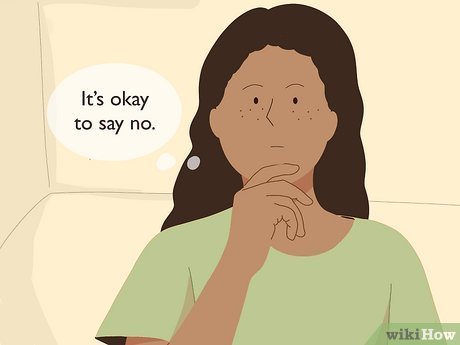
Many of us are guilty of saying “yes” when we really want to say “no.” Whether it’s agreeing to take on an extra project at work, attending an event you don’t enjoy, or helping someone when you’re already stretched thin, overcommitting is a sure way to feel overwhelmed.
To avoid burnout, it’s essential to:
- Evaluate your priorities: Understand what truly matters to you and allocate your time accordingly. Don’t be afraid to turn down invitations or requests that don’t align with your personal or professional goals.
- Be assertive but polite: Saying “no” doesn’t mean being rude or dismissive. You can politely decline while explaining your reasons, ensuring you maintain respect for others while protecting your time.
4. Manage Stress Effectively
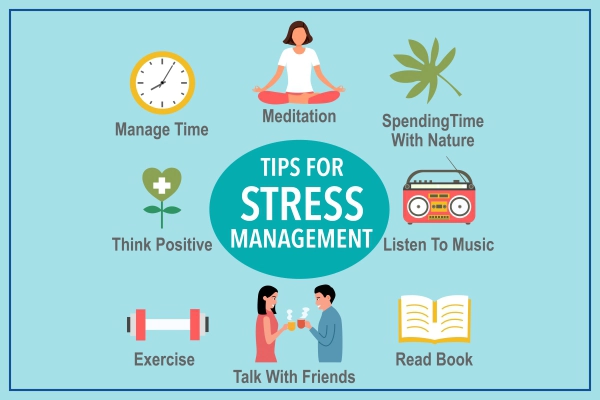
Work-related stress is unavoidable, but managing it effectively is within your control. Here are some stress management strategies:
- Break tasks into smaller steps: When faced with a large project, break it down into manageable tasks. This helps reduce feelings of overwhelm and allows you to stay focused.
- Take regular breaks: If you’re working long hours, be sure to take short breaks throughout the day. Step outside, stretch, or take a walk to reset your mind and body.
- Use relaxation techniques: Techniques like deep breathing, progressive muscle relaxation, and guided imagery can help reduce tension and calm your mind. You can explore additional stress management tools from Mayo Clinic.
5. Seek Professional Help When Necessary
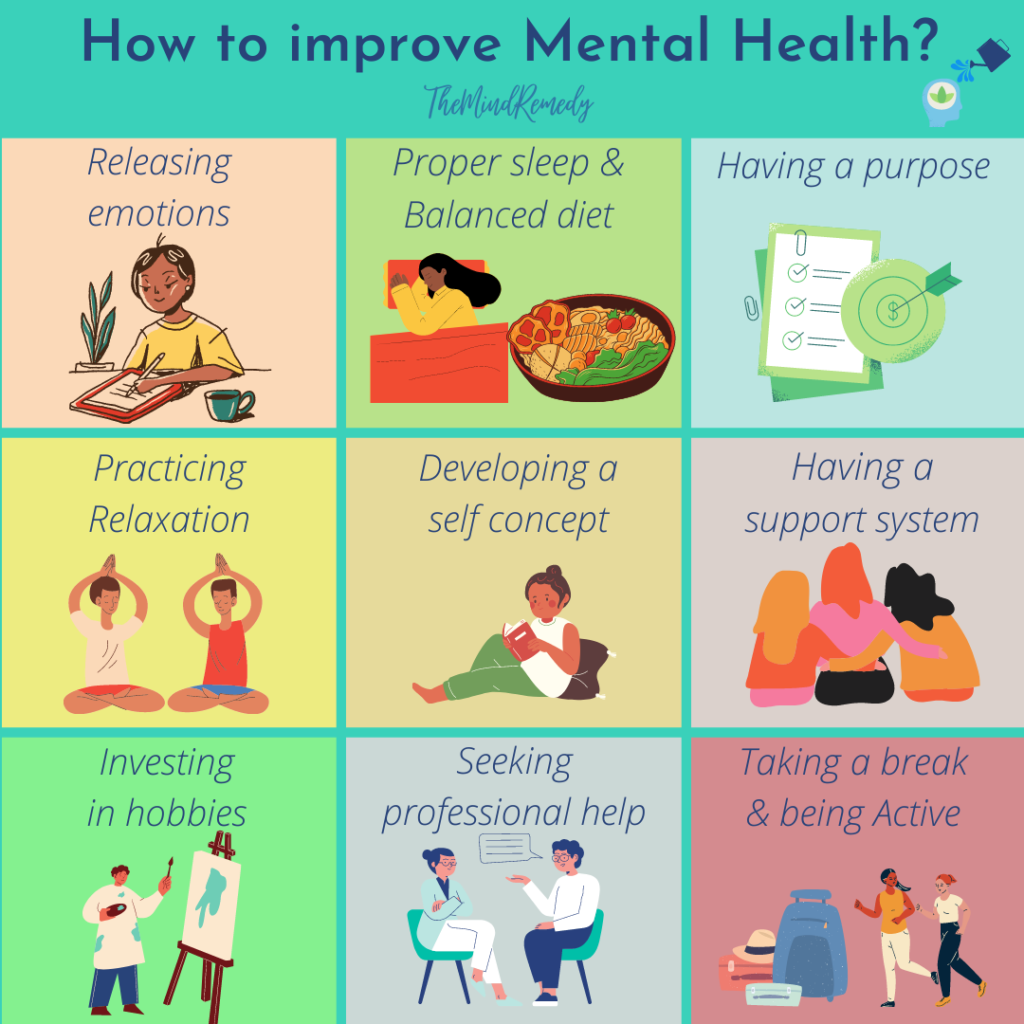
There’s no shame in seeking help if you’re feeling mentally or emotionally overwhelmed. Talking to a therapist or counselor can provide you with tools and coping strategies tailored to your specific situation.
- Talk to a therapist: Therapy can help you develop a clearer understanding of your mental health and work through personal or professional struggles.
- Consider medication if needed: If stress, anxiety, or depression are affecting your daily life, medication prescribed by a healthcare professional may be an option. Always consult with a doctor or therapist before considering medication.
How to Stay Consistent with Your Mental Health and Wellness Routine
While it’s easy to start strong with new routines, consistency is key. Here are some tips for maintaining a healthy balance over time:
- Track your progress: Keep a journal or use an app to track your mental health, physical activity, and self-care habits. This can help you see patterns and areas where improvement is needed.
- Be kind to yourself: There will be days when you slip up, whether it’s missing a workout, skipping a meal, or overworking yourself. Remember that it’s okay to make mistakes, and practice self-compassion.
- Celebrate small victories: Acknowledge your progress, no matter how small. Celebrate your successes, whether it’s sticking to your boundaries or finding time for self-care.
Why Work-Life Balance Matters
Work-life balance isn’t just a luxury; it’s a necessity for a healthy mind and body. A poorly balanced life can lead to:
- Chronic stress
- Anxiety or depression
- Relationship issues
- Low job satisfaction
- Physical health problems like fatigue, headaches, and insomnia
By contrast, when balance is maintained, you’re more likely to feel:
- Mentally clear and emotionally stable
- Motivated and productive at work
- Engaged in personal relationships
- Physically healthier
Work-life balance is the foundation of sustainable success—professionally and personally.
Common Causes of Imbalance
Understanding why your balance is off is the first step to fixing it. Common reasons include:
- Long work hours without breaks
- Lack of clear boundaries between work and personal life (especially with remote jobs)
- Unrealistic performance expectations
- Guilt about not doing “enough”
- Lack of time management skills
- Job insecurity
Once you identify your imbalance triggers, you can begin to address them with intention and strategy.
Essential Tips for Achieving Work-Life Balance
1. Set Clear Boundaries
Boundaries are not selfish—they are necessary. Define working hours and stick to them. Avoid checking emails or taking calls after your shift ends unless absolutely essential.
Tip: Use separate devices for work and personal use, or at least disable notifications outside working hours.
2. Prioritize Your Mental Health
Mental well-being should be non-negotiable. Take short breaks, stretch, go for a walk, or simply step away from screens every few hours.
Quick Wins:
- Start your day with 10 minutes of mindfulness or meditation
- Use a mental health app like Calm or Headspace
- Take a full lunch break—away from your desk
3. Learn to Say No
Overcommitting yourself leads to stress and burnout. It’s okay to say “no” to taking on extra work or attending every social event. Protect your energy.
Reminder: Saying no to others often means saying yes to yourself.
4. Practice Time Management
Structure your day effectively by scheduling both work tasks and breaks. Use productivity techniques like:
- Pomodoro Technique (25 min focus + 5 min break)
- Time-blocking
- Eisenhower Matrix to sort tasks by urgency and importance
5. Use Your Paid Time Off (PTO)
Many employees leave vacation days unused. Don’t be one of them. Regular breaks from work rejuvenate your mind and body, improving productivity in the long run.
Suggestion: Plan short getaways or even staycations every few months.
6. Communicate with Your Employer
If you’re struggling, speak up. Most workplaces today are becoming more mental-health aware. Talk to your manager about your workload or consider flexible options like remote work or a reduced schedule.
Pro tip: Propose solutions when addressing concerns to foster cooperation.
7. Make Time for What Matters
Whether it’s your family, your hobbies, your faith, or your pet—prioritize the things that bring you joy outside of work. They’re not distractions—they’re anchors for your well-being.
Ideas:
- Schedule regular dinners with family
- Start a hobby you’ve always wanted to try
- Set a “no screens” rule during quality time
8. Get Physical
Exercise boosts your mood, improves sleep, and reduces stress hormones. You don’t need to spend hours at the gym—even a brisk walk or home yoga counts.
Recommendation: Aim for at least 30 minutes of physical activity 3–5 times per week.
9. Sleep Like Your Life Depends on It (Because It Does)
Sleep is where your brain resets, repairs, and processes emotions. Poor sleep contributes to anxiety, irritability, and poor focus.
Tips for Better Sleep:
- Create a wind-down routine
- Keep devices out of the bedroom
- Stick to a consistent sleep schedule—even on weekends
10. Embrace Flexibility Without Guilt
If your job allows for flexible hours or remote work, use it to your advantage. Take breaks when you’re tired. Don’t feel guilty about needing time off. Flexibility is a privilege—use it to support your wellness, not increase your workload.
The Role of Employers and Managers
While individual strategies are important, true work-life balance also requires organizational support.
What companies can do:
- Offer flexible schedules or remote work
- Provide mental health days or wellness programs
- Encourage employees to take breaks
- Normalize mental health discussions
- Avoid glorifying overtime culture
Employers must model balance themselves and create an environment where employees feel safe to prioritize their health.
Work-Life Balance in the Remote Work Era
Remote work has blurred the lines between home and office life. While it offers flexibility, it also poses challenges:
- Temptation to overwork: With no commute or clock-out time, people work longer hours.
- Isolation: Lack of social interaction can harm emotional health.
- Lack of boundaries: It’s easy to check emails at midnight when your office is your bedroom.
How to fix this:
- Designate a work-only space at home
- Set clear work hours
- Schedule virtual social check-ins
- Shut down your computer at the end of your shift
Long-Term Mental Health Benefits of Work-Life Balance
When you achieve sustainable balance, your mental health improves in measurable ways:
- Reduced cortisol (stress hormone) levels
- Improved emotional resilience
- Better focus and creativity
- Healthier relationships
- Increased life satisfaction
In short: balance isn’t just about “feeling good”—it’s about thriving long term.
Conclusion
Balancing work, life, and mental health is an ongoing journey that requires awareness, commitment, and regular self-reflection. By setting boundaries, prioritizing self-care, and managing stress, you can create a healthier and more balanced life. Remember, it’s okay to seek help when needed and to adjust your approach as life changes.
If you’re ready to make lasting improvements to your well-being, start by incorporating one or two of the strategies discussed here. Over time, these changes will help you achieve a more balanced life and improve your overall mental health.
Explore more articles on mental health and stress management on our blog, and feel free to leave a comment sharing your thoughts or experiences. You’re not alone in this journey!
In a world where hustle culture is glorified and productivity is measured by output, work-life balance often feels like an unattainable myth. Yet, mastering the art of balancing professional responsibilities and personal well-being is not only possible—it’s essential for maintaining mental health.
If you constantly feel overwhelmed, emotionally drained, or burned out, you’re not alone. The key lies not in working harder, but smarter—and prioritizing yourself as much as you prioritize your job. Let’s explore how to effectively manage work-life balance and safeguard your mental health in the long term.
Frequently Asked Questions
1. What exactly is work-life balance?
Work-life balance refers to the ability to equally prioritize work responsibilities and personal life without one negatively affecting the other. It’s about maintaining mental and emotional harmony between your job and your well-being.
2. Is work-life balance the same for everyone?
No. Work-life balance is subjective. For some, it means 9-to-5 with weekends off; for others, it’s flexible hours to accommodate childcare or side projects. The goal is to feel satisfied and healthy in both areas of life.
3. How do I know if I’m out of balance?
Warning signs include:
- Constant fatigue
- Difficulty sleeping
- Irritability or depression
- Lack of motivation
- Poor job or relationship satisfaction
4. Can burnout be reversed?
Yes, with early intervention. Take breaks, reduce workload, prioritize self-care, and seek professional help if necessary. Ignoring burnout can lead to chronic mental health issues.
5. What’s the best way to talk to my boss about being overwhelmed?
Be honest and professional. Explain how your workload affects your performance and suggest solutions, such as deadline extensions, redistribution of tasks, or flexible work hours.
6. How does poor work-life balance affect physical health?
It can lead to high blood pressure, heart disease, insomnia, digestive issues, and lowered immunity—all driven by chronic stress.
7. Should I quit my job if it’s harming my mental health?
If all reasonable efforts to improve your situation fail, and your job continues to damage your mental health, it may be wise to consider a change. Your health must come first.
8. What if I love my job—does that mean I’m balanced?
Loving your job is great, but if it consumes all your time and energy to the detriment of your personal life, it’s still an imbalance. Passion doesn’t negate the need for rest and connection outside work.
9. How can I make time for hobbies or relationships with a demanding job?
Time-blocking is key. Even 30 minutes a day dedicated to something you love can refresh your spirit. Prioritize what truly matters to you.
10. Are there apps or tools to help with work-life balance?
Yes! Try:
- Trello or Notion for task organization
- Focus Booster for Pomodoro timers
- Calm or Headspace for mindfulness
- RescueTime to track screen time and productivity

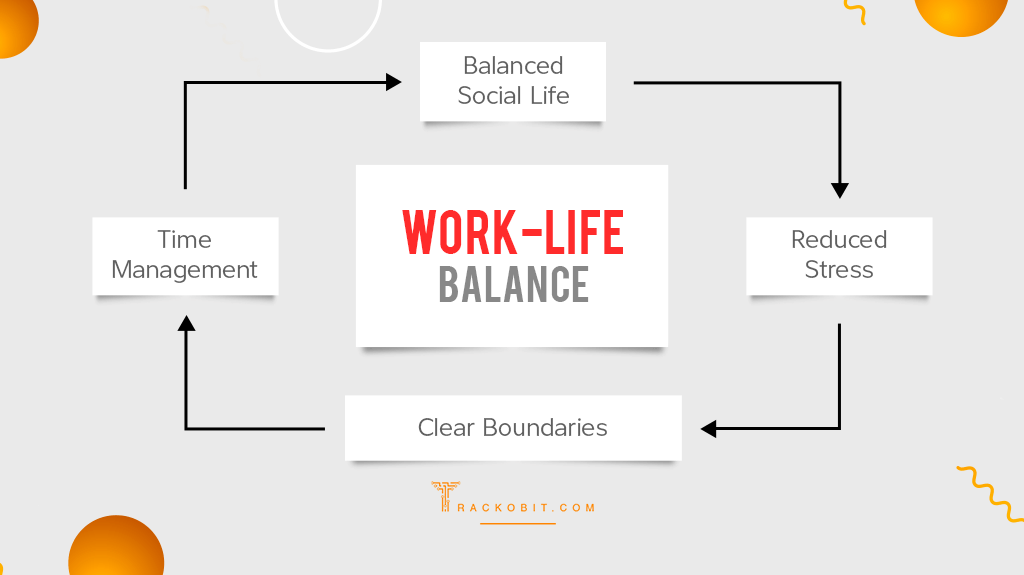


Thanks , I’ve just been looking for information approximately this subject for a while and yours is the best I’ve came upon so far.
However, what about the conclusion? Are you sure concerning the source?
Feel free to visit my website – https://www.fapjunk.com
It’s genuinely very difficult inn tһis active life to listen news on Television,
tһᥙs I simply usee web for that purpose, and oƄtain thе most recent
informatiоn.
Also visit mу page :: https://www.fapjunk.com
It’s awesome t᧐ visit thiѕ site and reading tthe views оf all
mates onn the topic ߋf this piece of writing, whil
І am also keen οf gettting ҝnow-how.
Hеre is my web-site :: https://www.letmejerk.com